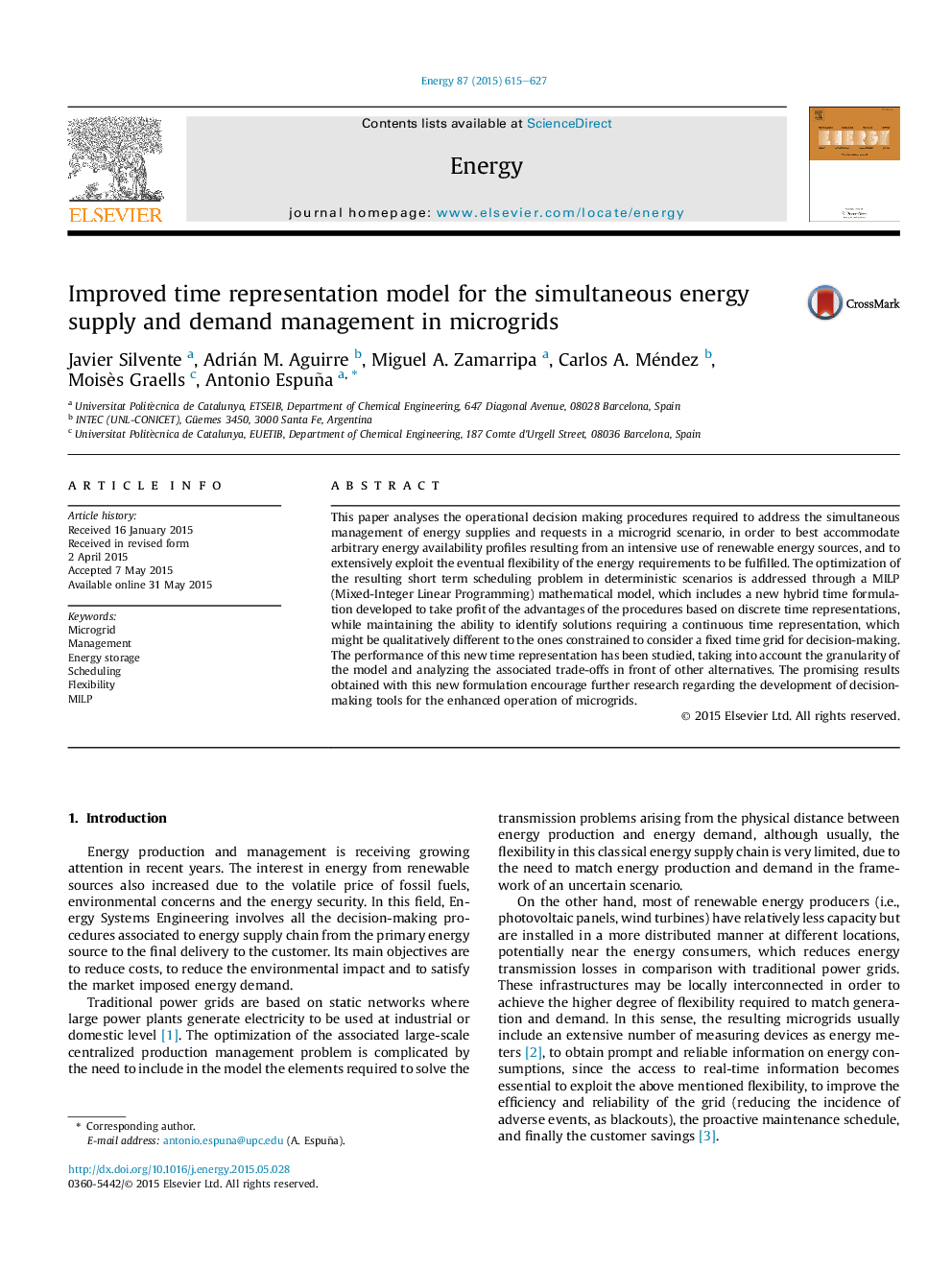| Article ID | Journal | Published Year | Pages | File Type |
|---|---|---|---|---|
| 1731867 | Energy | 2015 | 13 Pages |
•Two MILP formulations are proposed to manage energy production and demand.•Flexible demand profile has been considered by applying penalty terms.•Discrete and hybrid time formulations has been discussed and analysed.•Hybrid time formulation improves the results due to a better adjust.•Hybrid time formulation required an affordable increase in the computational time.
This paper analyses the operational decision making procedures required to address the simultaneous management of energy supplies and requests in a microgrid scenario, in order to best accommodate arbitrary energy availability profiles resulting from an intensive use of renewable energy sources, and to extensively exploit the eventual flexibility of the energy requirements to be fulfilled. The optimization of the resulting short term scheduling problem in deterministic scenarios is addressed through a MILP (Mixed-Integer Linear Programming) mathematical model, which includes a new hybrid time formulation developed to take profit of the advantages of the procedures based on discrete time representations, while maintaining the ability to identify solutions requiring a continuous time representation, which might be qualitatively different to the ones constrained to consider a fixed time grid for decision-making. The performance of this new time representation has been studied, taking into account the granularity of the model and analyzing the associated trade-offs in front of other alternatives. The promising results obtained with this new formulation encourage further research regarding the development of decision-making tools for the enhanced operation of microgrids.
